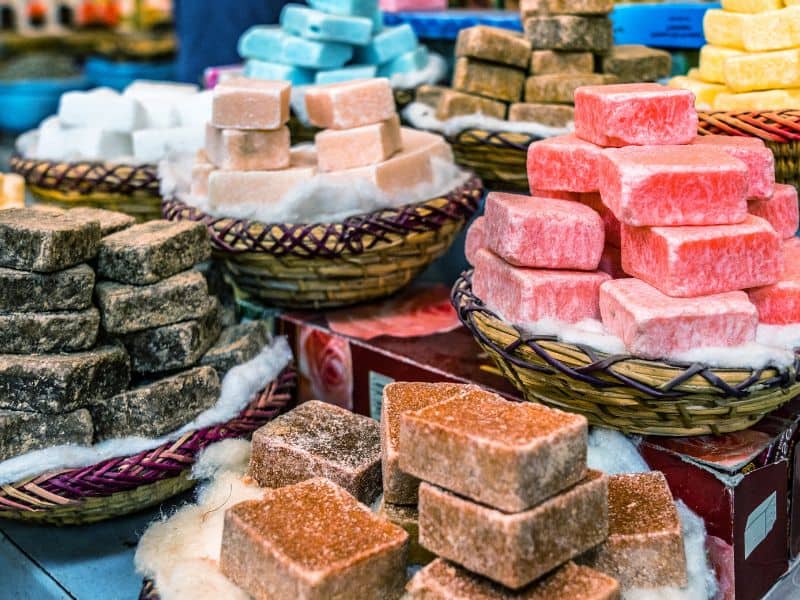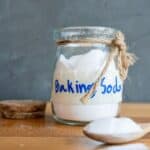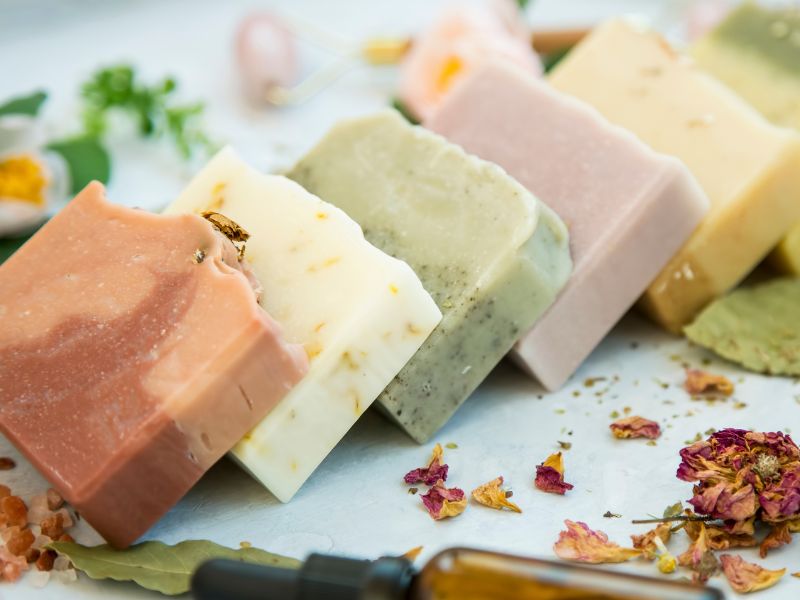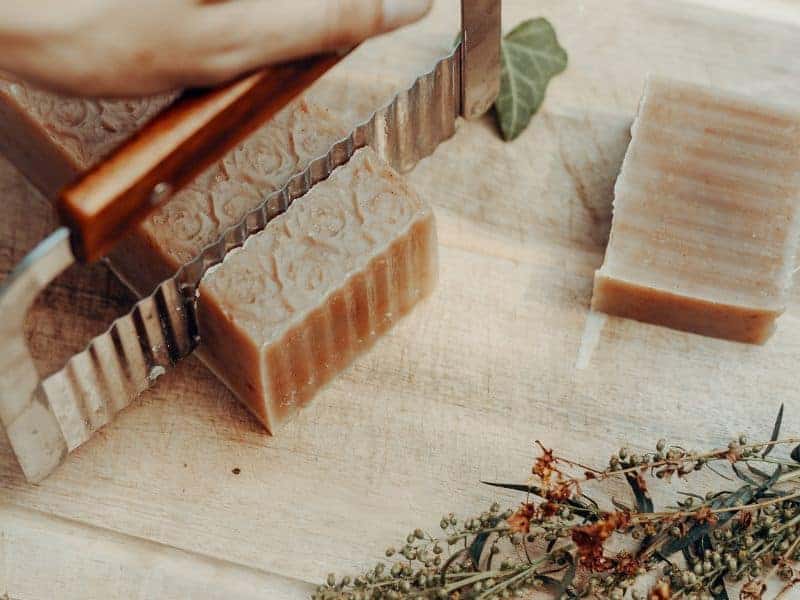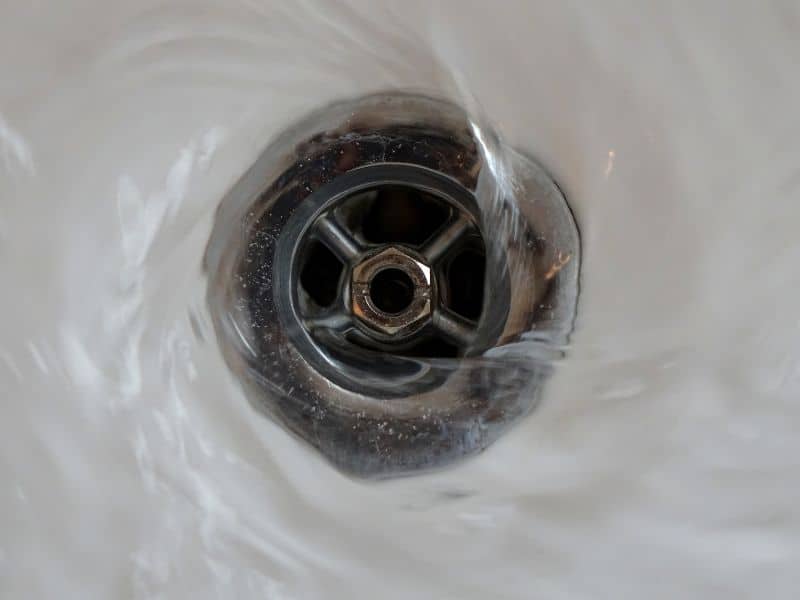Have you ever wondered why handmade soap costs more than commercial soaps? If so, you’re not alone. Many people are surprised to learn that handmade soap can cost up to four times as much as its store-bought counterparts. Let’s explore the reasons behind the higher price.
Handmade soaps are expensive due to the high-quality, natural ingredients used in the production process, as well as the time and labor required to make each bar. Additionally, small-batch soap makers often have higher overhead costs.
All of these factors contribute to the cost of handmade soap. The ingredients used in handmade soaps are not only more expensive than their commercial counterparts but also healthier for your skin and the environment. Let’s take a closer look at what goes into handmade soaps.
The Expenses of Making Handmade Soap
Ingredients Used in Handmade Soap
Handmade soap is typically made with natural ingredients such as plant oils, essential oils, and herbs. Some soap makers also use additives like clay or oatmeal for their skin-soothing benefits. The ingredients used in handmade soap are carefully chosen for their nourishing properties and the benefits they offer to the skin.
Detailed Description of the Soap-Making Process
The process of making handmade soap involves several steps. First, the oils and lye are mixed together in a precise ratio. This causes a chemical reaction called saponification, which turns the oils into soap. The soap mixture is then poured into molds, where it solidifies and cures for several weeks. During the curing process, the excess water evaporates, resulting in a hard, long-lasting bar of soap.
Time and Labor Required to Make Handmade Soap
Making handmade soap is a time-consuming process that requires careful attention to detail. The soap maker must measure and mix the ingredients precisely, monitor the temperature of the mixture, and pour it into molds before it hardens. The curing process also takes several weeks, during which the soap must be checked regularly for quality. The time and labor required to make handmade soap contribute to its higher cost compared to commercial soap.
Cost of Ingredients
Comparison of Ingredients in Handmade Soap vs Commercial Soap
Commercial soap is often made with synthetic ingredients that are cheaper and easier to obtain than natural ingredients. Handmade soap, on the other hand, is typically made with high-quality, natural ingredients that are more expensive. This can make the cost of handmade soap higher than commercial soap.
High-Quality and Natural Ingredients
The ingredients used in handmade soap are carefully chosen for their nourishing properties and the benefits they offer to the skin. Natural ingredients like plant oils and essential oils are used for their moisturizing and soothing properties. These ingredients are often more expensive than the synthetic ingredients used in commercial soap.
Cost of Raw Materials
The cost of raw materials for handmade soap production can vary depending on the ingredients used. High-quality, natural ingredients can be more expensive than synthetic ingredients. Additionally, some ingredients like essential oils and herbs may need to be sourced from specialty suppliers, which can also increase the cost.
Overhead Expenses
Overhead Expenses for Handmade Soap Businesses
Handmade soap makers have overhead expenses similar to any small business, including equipment, supplies, and marketing costs. Additionally, because they often source high-quality, natural ingredients, the cost of raw materials can be higher compared to commercial soap manufacturers.
Small Handmade Soap Businesses vs Commercial Soap Manufacturers
Small handmade soap businesses have lower production volumes than commercial soap manufacturers, meaning they may not have the same economies of scale in terms of raw materials and production costs. This can lead to higher prices for handmade soap.
This basically means the more you produce the lower the price is. So when you are small batch handmade soap producer you are going to have more expenses per bar.
Additional Expenses for Handmade Soap Makers
Handmade soap makers often have to invest in specialized packaging and labeling to differentiate their products and ensure they stand out on store shelves. This can add additional costs to the production process.
Small Batch Handmade Soap
Small batch production is a popular method used in handmade soap making, and it refers to the creation of soap in small, limited quantities. This process is in stark contrast to commercial soap manufacturers who use large-scale production methods to create their products.
Improved Quality and More Control
There are several reasons why small batch production is used in handmade soap making. First, it allows soap makers to have more control over the quality of their products. With small batches, soap makers can closely monitor each step of the process and ensure that each bar is made to their high standards.
This level of quality control is often not possible in large-scale production.
Small batch production also allows soap makers to experiment with new and unique ingredients or scents without committing to large quantities. This experimentation can lead to the creation of unique and highly sought after products.
Increased Costs
Small batch production also comes with some drawbacks that can increase the cost of handmade soap. Since the soap is made in smaller quantities, the cost per unit is higher than if it was made in bulk. The cost of raw materials and labor required to produce small batches can also be higher.
In addition, small-batch soap makers often have higher overhead expenses than commercial soap manufacturers. Small businesses often operate out of their homes or small studios, and they may have to purchase specialized equipment or supplies to produce their products. They may also have to invest in marketing, packaging, and labeling to stand out in a crowded marketplace.
All of these factors contribute to the higher cost of small-batch handmade soap. However, many consumers are willing to pay a premium for handmade soap due to the high quality of the ingredients used and the unique scents and designs available. They also value the knowledge that their purchase is supporting a small business and helping to sustain a handmade craft.
Cost of Good Soap
When it comes to soap you generally get what you pay for. If you want the highest quality soap with natural, high-quality ingredients then you will have to pay a premium for that product.
How Much Should a Good Bar of Soap Cost?
The cost of a good bar of soap can vary depending on several factors, such as the quality of the ingredients, the size of the bar, and the production method. Generally, handmade soap made with high-quality, natural ingredients will cost more than mass-produced commercial soap.
A good bar of soap can cost anywhere between $5 to $10. It will depend on the soap type and the ingredients used to make it. Ultimately, the value of the soap will depend on your priorities when it comes to skincare, sustainability, and supporting small businesses.
Whether you’re looking for natural ingredients, unique scents, or a way to support small businesses, handmade soap is a great choice. The cost is higher, but you get what you pay for — a quality product made with natural ingredients and unique designs. It’s a small price to pay.
Benefits of Handmade Soap
Health Benefits of Using Handmade Soap
Handmade soap is often made with natural ingredients that are gentle on the skin and free of harsh chemicals found in many commercial soaps. This can lead to healthier, more nourished skin.
Customized Soap Products
You have such a variety of handmade soaps to choose from that you can find unique soap products that will never be available in big box stores. You can get soap with specific essential oils and natural exfoliants from local soap makers in your community.
Environmental Benefits of Handmade Soap Production
Handmade soap production often uses less energy and generates less waste than commercial soap production. Additionally, because the ingredients used in handmade soap are often sustainably sourced, their production has a lower environmental impact.
Support for Small Businesses and Local Economies
By purchasing handmade soap from small businesses, consumers can help support local economies and independent entrepreneurs. Additionally, by choosing to buy from businesses that prioritize ethical and sustainable production, consumers can have a positive impact on the environment.
Frequently Asked Questions
Handmade soap is often made in small batches and contains natural ingredients, while commercial soap is mass-produced and can contain synthetic additives and harsh chemicals.
The process of making handmade soap can take several hours, depending on the recipe and the size of the batch.
Common additives used in handmade soap include oatmeal, honey, lavender buds, and activated charcoal.
Yes, handmade soap can be customized with different scents, colors, and additives to create unique and personalized products.
Handmade soap can provide benefits for the skin, such as increased moisture and reduced irritation. It is also often environmentally friendly and can support small businesses.
Handmade soap can be purchased from independent soap makers, online retailers, etsy, and at farmers markets or craft fairs.
Conclusion
In conclusion, handmade soap is more expensive than commercial soap due to the small-batch production process and higher overhead expenses. However, many people are willing to pay a premium for handmade soap because of its unique scents, designs, and health benefits, as well as its support for small businesses and local economies.

